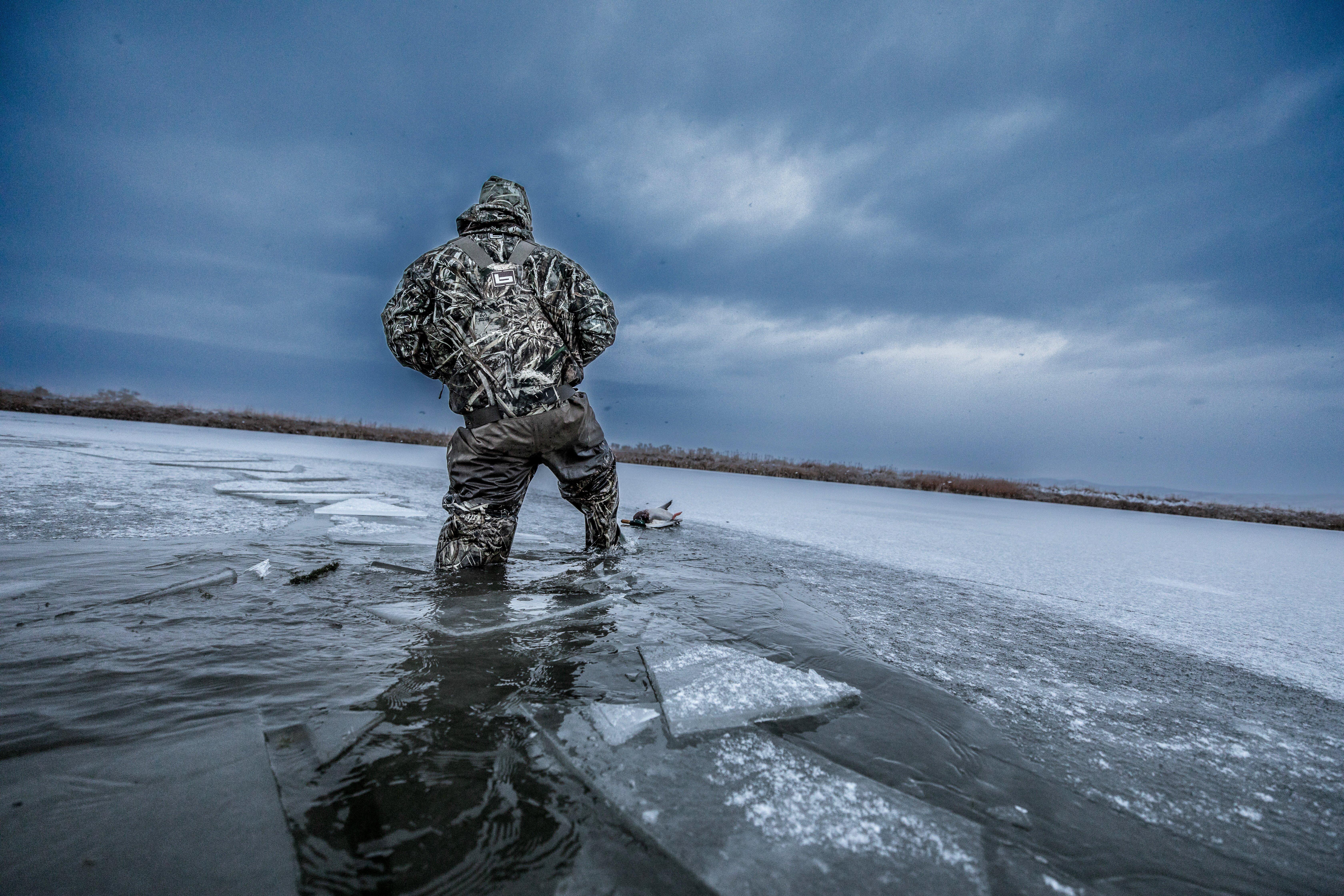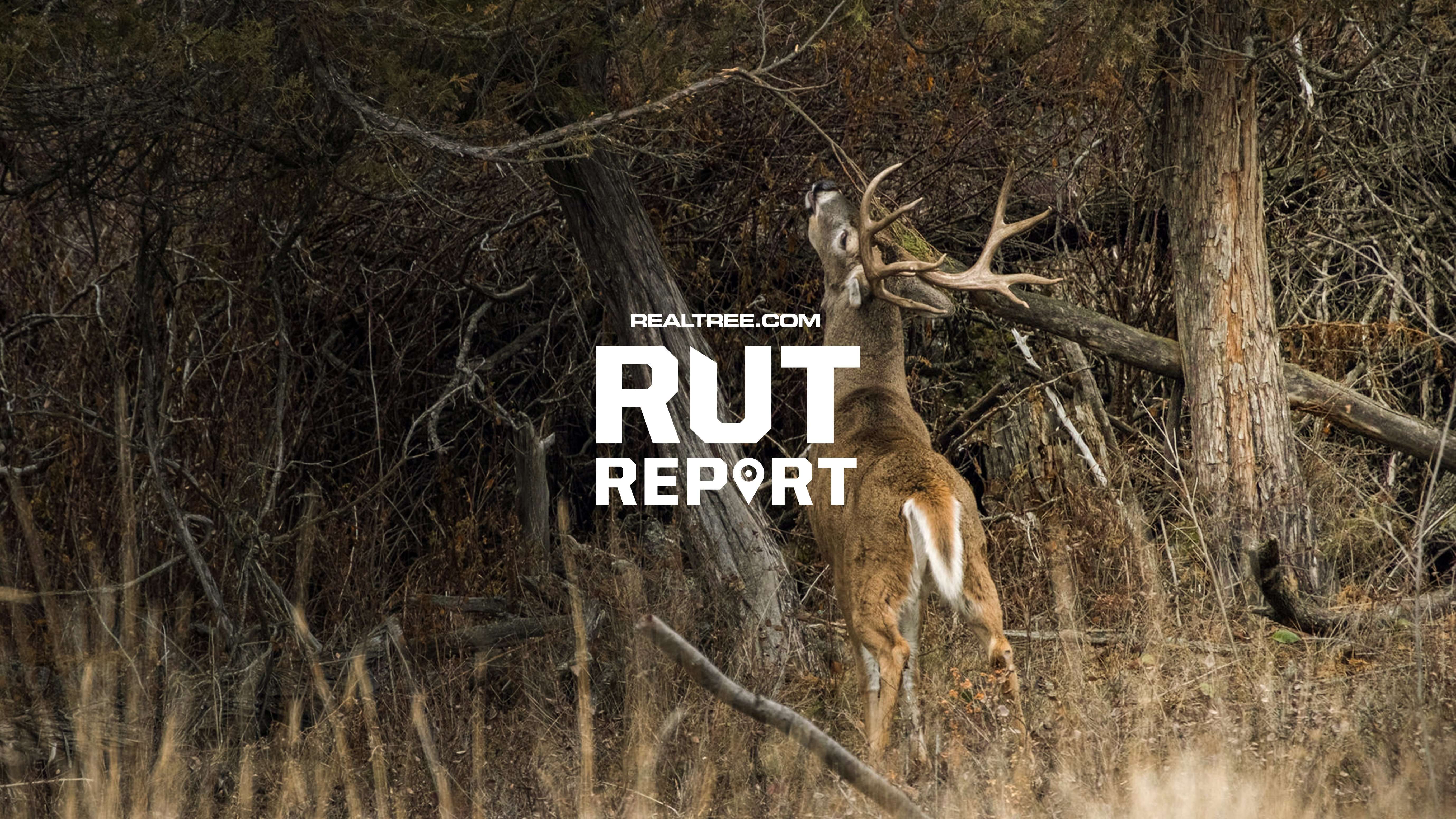From stale birds to heavy hunting pressure, no every duck hunt goes as planned. Here’s how to roll with the punches

Weather is one of many factors that can complicate duck hunting. You can’t control it, but you can deal with anything Mother Nature throws at you. Photo by Bill Konway.
Maybe your duck season just ended, or perhaps it’s only getting started. Either way, your mind is likely filled with visions of heavy straps, the smell of wet retrievers, and the whistling of wild wings overhead.
But let’s face it: You’re probably also anticipating or remembering some difficult situations afield. Empty skies. Crowded WMAs. Long, grinding days with no shots fired. That’s part of the game, and everyone faces those tough scenarios to some degree during a typical duck campaign. How you respond to those challenges often determines the success — or lack thereof — of a day or even a season. Consider these five common duck hunting dilemmas and the tricks to beating them.
Don’t Miss: How Close Can You Set Up To Another Duck Hunter?
STALE DUCKS
Early or late, North or South, you’ll eventually see a pause in the migration and face the challenge of hunting stale, pressured ducks. Two strategies can help. First, forget the skittish ducks everyone else is chasing and redouble your scouting efforts to find pockets of relatively unpressured birds. You don’t need to find 500 ducks, as even three or four dozen can make for a good shoot. Scour spots where other folks can’t or won’t hunt. Poke around to discover places hunters might have overlooked. Observe how ducks have reacted to pressure and changed their routine a bit to find secluded feeding and loafing areas. This requires lots of work, and you won’t always find success. When you do, however, it’s worth it.
If you can’t find “new” birds, focus on what you can control: effort, smart setups, extra-careful concealment and common-sense calling. Use the best practices for as long as you can hunt, and make the most of the few opportunities you’ll receive. Tough? Sure. But you’ll kill more ducks through hard, smart hunting than by quitting early.
POOR WEATHER
This often goes hand in hand with stale ducks, especially during long stretches of unseasonably warm weather. But other weather conditions — fog, rain, cloud cover, light winds, heavy winds and others — can also make hunting tough.
Hey, no one can control the weather. All you can do is keep tabs on what’s coming and prepare for it. Cloudy days demand better concealment. Light winds require that you add motion to your spread. High winds might force you to tweak your decoys and blind location. Unseasonably warm stretches force you to make the most of early morning and late evening activity. During rain and snow, wear the best waterproof stuff you have and grit your teeth.
You get the idea. Roll with the weather, and stay out there.
UNFORCED ERRORS
Some days duck hunters are their own worst enemies, whether they choose a poor hide, set up in the wrong spot, mess up the decoys or can’t hit a pig in the hind end with a coal shovel. You should expect this. People make mistakes. The key is to recognize and learn from those gaffes, and then endeavor to not repeat them.
Bad shooting? Get to the range this off-season. Keep getting busted? Take more time and care to conceal your hide. Off the X? Observe where birds want to go, identify common behavior patterns, and get it right the next time. Always strive to learn and evolve as a hunter.
OTHER HUNTERS
Nothing ruins duck hunting like close competition from other people. Everyone wants to avoid crowded, unpleasant hunts, but few folks do what’s necessary to find solitude: Hunt where or when other people cannot. It’s cliché but true.
Try to avoid pressure in the same manner you’d beat stale ducks: Scout more than you hunt to find secluded or otherwise overlooked areas that attract a few birds but little hunting pressure. That could involve a small timber hole you can only reach via a long walk, or a hidden backwater that can only be accessed by lots of huffing and puffing. Most hunters want to be in their boat in easily accessible, semi-comfortable situations. Avoid those. Even finding one “secret” area per season will eventually provide a list of potential hotspots you can tap when everyone else is hunting the same stuff
Also, try to hunt when others can’t. That’s not always possible with work and family obligations. But even banking a few hours one morning during the week will likely offer better hunting than the usual weekend runaround at your local WMA. Sneak away whenever you can, especially if conditions look promising.
Don’t Miss: 3 Times When Duck Hunters Should Pick Up the Spread and Move
MEASURING YOURSELF AGAINST OTHER HUNTERS
Not to get too deep into social comparison theory, but it’s especially easy nowadays to view the success of other hunters on social media and feel glum or inadequate, especially when some hotshot is filling the boat with greenheads daily while you struggle to scratch a few teal and gaddies.
Stop it. Everyone’s situation is different, and you can only play the cards you’ve been dealt. It’s pointless to envy someone who can hunt unpressured ducks every day in a private paradise. Ignore that, and simply strive to attain the most success possible, even if that means picking away at small ducks at the neighborhood wildlife area. Ultimately, you’ll look back on that grind and the good hunts you produced and realize how much you enjoyed it. And that’s critical, because enjoyment is the No. 1 reason to duck hunt in the first place.












